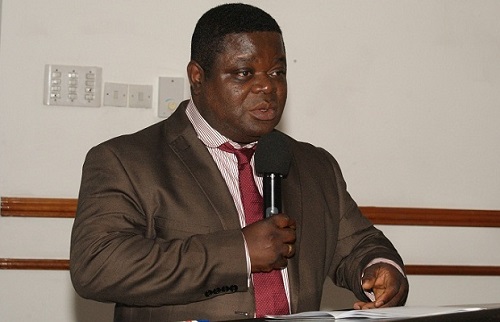… not further borrowing to burden debt stock
As the country intensifies its efforts to keep the coronavirus pandemic spread under control, economist at the University of Ghana, Professor Peter Quartey, has advised government to be cautious on how it spends, so as not to add any further burden on the already high debt stock.
The number of the deadly pandemic’s reported cases has seen a massive rise in the past few days, and is even expected to go up further with confirmation of the new variant of the virus in the country – which is said to spread more rapidly. This is likely to push government to increase its spending in the fight against the virus, and such spending can only be financed by borrowing as revenue mobilisation continues to remain a challenge.
If that happens, it will have a great negative impact on the fiscal situation of the economy. Budget deficit is also expected to widen to 11.4 percent at end of the year from a projected 4.7 percent, whereas total revenue and grants have been revised to 13.9 percent of GDP in 2020; representing a 20-percentage points decrease over the original 2020 budget target.
The country’s public debt has reached what economists call unsustainable levels, hitting 71 percent as of September 2020 and further expected to end the year at 77 percent, according to IMF projections.
It is against this background that the economics professor is urging government not to focus on spending too much on the virus, but to rather intensify education so that people take personal responsibility to protect themselves and prevent spread of the virus.
“The COVID-19 fight, going forward, shouldn’t have a significant effect on our debt situation. Now we have put in quite a lot of structures already. But for me, what we need to do more is enforcement of the protocols and educating people. If we invest in so many hospitals, if we invest in many facilities and people are not adhering to protocols, then we will keep borrowing to fight it.
“But where we do the needful by enforcing the protocols and educating people to change their habits, we should be able to handle this pandemic without necessarily having going to borrow to fight it. The solution also lies in people’s habits and attitudes.”
Professor Quartey further stressed the importance of revenue mobilisation in this period, as continuous depletion of the fiscal situation will be inimical to the economy – adding that the reopening of schools will further contribute to economic recovery.
“High budget deficit is not something that any government would like to have, except when there is a critical need to spend. When there is high budget deficit, it affects your macroeconomic fundamentals; it leads to high inflation, among others. However, in some circumstances when you spend you are basically stimulating economic activity that could lead to higher growth and employment. So, you need to strike a good balance between spending and promoting growth and employment.
“But for me, the comfort is the fact that we are gradually opening up the economy. The education sector has been recently opened, and that is a very huge sector; so, economic activity is gradually coming back. If we respect the protocols and manage the number of cases well, I believe revenue will be coming in as the economy is opening up. We can borrow within reasonable limits, but we need to raise more revenue,” he said.










